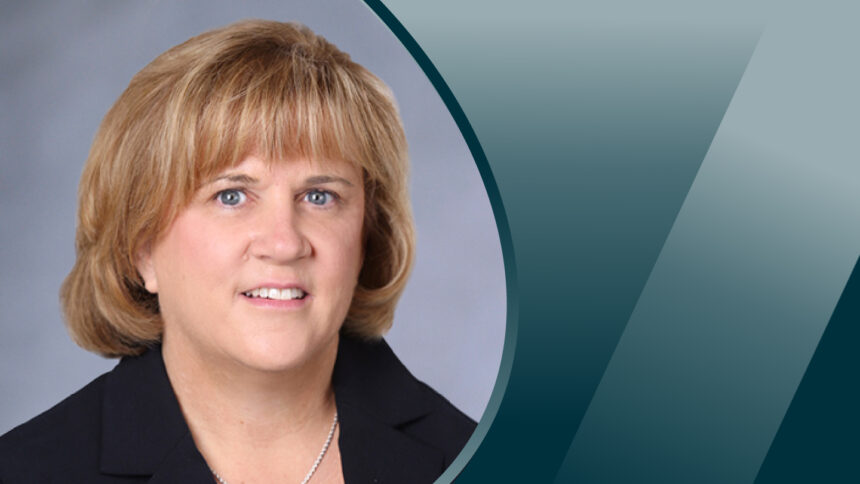
After working for more than 30 years in the field of hospice nursing – exploring roles across specialties, including patient services, operations and management – I can confidently say that hospice offers nurses unique experiences that can’t be found in any other setting.
As a hospice nurse, you forge deep connections with patients and families during end-of-life care, collaborate closely with interdisciplinary teams and provide holistic, personalized care tailored to each individual’s needs. It has always been remarkable for me to experience the unparalleled benefits of a hospice nursing career, and yet, it’s surprising to witness how often this fulfilling field is missed by many nurses on their career journeys.
For me, working as a hospice nurse means getting to say, “I love what I do.”
At its core, it’s about caring for individuals at their most vulnerable stage of life. While often a challenging time, the end of life is unquestionably a meaningful time, as well. Hospice care extends beyond tending to a patient’s physical needs. Hospice nurses also address their emotional, cultural and spiritual needs. We are not just healthcare providers — we are companions, advocates and sources of solace for those navigating their final journey.
The significance of hospice care was truly driven home for me by the contrasting experiences of losing both my parents within the span of just six months. My mother’s passing was swift and in a hospital setting, and she did not receive hospice care. In those harrowing moments, I didn’t want to be a nurse; I yearned to be a daughter, receiving support from those around me.
My father, on the other hand, had the privilege of spending his final days in a hospice facility. We both received around-the-clock support, and he was able to spend his end of life living comfortably. During this experience, I was reminded of just how impactful hospice nurses are in making a patient and their loved one feel heard and cared for. It’s a field where families might not always fully understand the intricacies of what’s happening, but as nurses, we can extend our hands and hearts, guiding patients through this emotional terrain.
The National Hospice and Palliative Care Organization reported that in 2020, 1.72 million Medicare beneficiaries chose hospice. This was a 6.8% increase from 2019, marking the largest recent year-over-year increase in the number of Americans choosing hospice care. With our growing aging population, we will continue to see an increase in the utilization of hospice care, and the need for hospice nurses. This growing demand further highlights the important role that hospice nurses play in the care continuum, as well as the opportunities that exist for nurses seeking a meaningful and impactful career.
I began my career with VITAS Healthcare, a hospice provider, in 1989 as a nurse in an inpatient unit, which is only one of the various settings in which patients can receive hospice care. Whether we provide care in hospice facilities, nursing homes, assisted living communities or a patient’s home, nurses have the autonomy and flexibility to make bedside decisions and are always supported by our teams.
Having a team is vital to providing coordinated, holistic end-of-life care. Through an interdisciplinary approach — working with a diverse group of nurses, physicians, aides, social workers, chaplains, volunteers and bereavement specialists — teams can support each other while individually bringing their unique skillset to the patient’s care experience.
Additionally, a career in hospice nursing provides numerous opportunities for growth, advancement and professional development. After serving as an inpatient unit nurse, I ascended to various roles, including national patient care administrator, director of patient services, director and vice president of clinical services, executive vice president of operations and, as of recently, the executive vice president of patient and family supportive services. My journey is only one of the many examples of the routes someone’s career can take in this field, yet it’s important to note that regardless of the specific route taken, growth and education are encouraged throughout the field.
The demands and stressors of the nursing profession can take a toll on one’s wellbeing. In a 2020 survey by the American Nurses Association, almost two-thirds (62%) of nurses reported experiencing burnout. Unlike the fast-paced environment of the ER or ICU, hospice provides an extraordinary opportunity to connect with patients and their families in an intimate way. Spending one-on-one time with the patient and their family, often in their own home, allows us to understand their daily lives, family dynamics, cultural background and end-of-life values, which enables us to approach patient care with creativity and tailor interventions to their needs. In essence, it’s the fusion of clinical proficiency with invaluable soft skills that sets hospice nursing apart and makes each day a testament to the power of compassionate care.
Being a hospice nurse is more than a career, it’s a calling. Hospice nursing enriches your own life while allowing you to use your passion to profoundly impact the lives of many others. It’s a calling that, once answered, becomes a journey filled with purpose.
Patty Husted is Executive Vice President of Patient and Family Supportive Services at VITAS Healthcare, the nation’s leading provider of end-of-life care. She has more than 30 years of experience in hospice nursing, clinical and patient services, and operations and management.
The opinions expressed in McKnight’s Long-Term Care News guest submissions are the author’s and are not necessarily those of McKnight’s Long-Term Care News or its editors.
Have a column idea? See our submission guidelines here.





